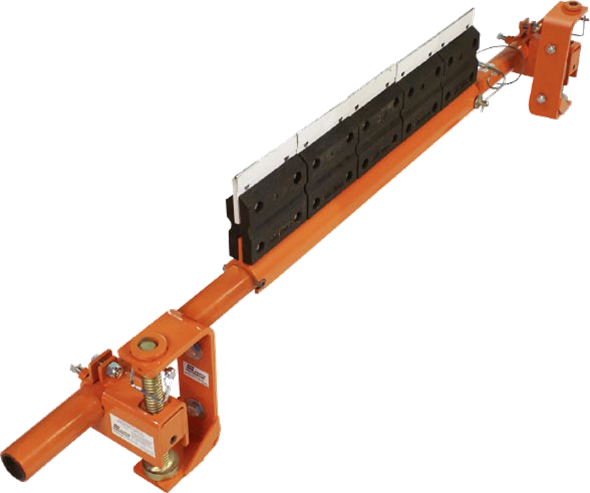Product Specifications
| Belt Width | Up to 126 in (up to 3000 mm) |
| Belt Speed | Up to 5.1 m/s |
| Temperature | Between -30 °C and 95 °C |
| Corrosive Conditions | Yes |
| Compatible with Reversing Belts or Roll Back | Yes |
| Accommodates Mechanical Splices | Yes |
Secondary Cleaners
Backs up the primary belt cleaner to thoroughly remove any leftover fugitive material from the belt and return it to the material stream.
The Martin® SQC2™ Secondary Belt Cleaner incorporates individually-cushioned tungsten carbide blades for effective conveyor belt cleaning without risk to belt, splice or blade.
Our technicians and engineers are available to provide expert advice and assistance on this product and all of your bulk material handling questions and problems. Please contact us today and let us help!
| Belt Width | Up to 126 in (up to 3000 mm) |
| Belt Speed | Up to 5.1 m/s |
| Temperature | Between -30 °C and 95 °C |
| Corrosive Conditions | Yes |
| Compatible with Reversing Belts or Roll Back | Yes |
| Accommodates Mechanical Splices | Yes |
+44(0)115 946 47 46
Martin Engineering Ltd.
Unit 33, The Tangent Business Hub
Weighbridge Road, Shirebrook, NG20 8RX
United Kingdom
Get Directions
info@martin-eng.co.uk
+44(0)115 946 47 46
